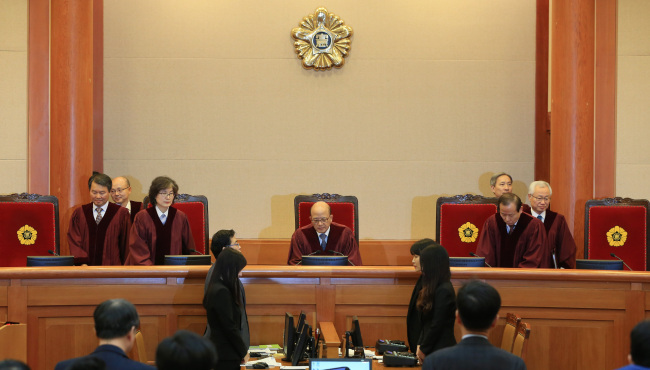Military law allowing heavier penalties for insulting the head of state is constitutional, Korea’s top law court said Tuesday.
In a 7-2 decision, the Constitutional Court decided that the tougher punishments for soldiers who affront the president is constitutional, as the president is the commander-in-chief, making him or her the highest position in the military command system.
 |
| (Yonhap) |
An army sergeant, whose information was withheld, filed a constitutional appeal after he was sentenced to a six-month jail term with one year probation for posting nine messages criticizing former President Lee Myung-bak on Twitter in 2011.
Current military rules stipulate that soldiers insulting a superior can be punished by up to three years in jail. This is heavier than similar charges for civilians, which can be punished by up to one year in jail or a fine of 2 million won ($1,600).
He had claimed that the concept of “superior” was ambiguous and too broad, and that it excessively breaches the freedom of speech.
The court, however, ruled that the president is his superior with the right to command.
“The Constitution clearly stipulates that the president is the commander-in-chief, and the military commanding law also specifies that the president and soldiers are in a relationship of command and obedience,” the verdict said.
The court also recognized the necessity of a separate penalty rule for soldiers, noting: “In criminal cases, the punishment is impossible once the complaint is withdrawn. (If such cases happen in the military) this can lead to indiscipline risk for the military command system, thereby putting national safety at risk.”
The two dissenting judges said the regulation breaches the freedom of speech, as the scope of “insulting” in the rule is too comprehensive and, therefore, limits the chances to fairly settle community problems.
By Lee Hyun-jeong (rene@heraldcorp.com)

